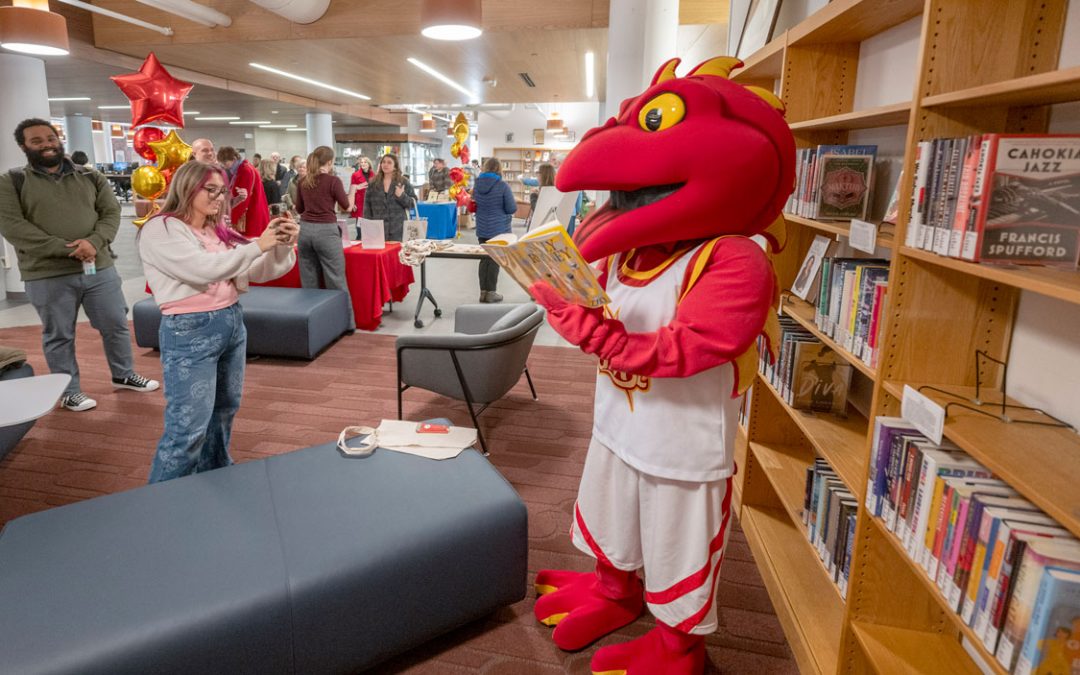
Monica Treviño, a PhD clinical psychology student, has been strengthening her linguistic and clinical skills to better serve the Latinx community. (Photo by Derik Holtmann)
Monica Treviño was born in Mexico and grew up speaking Spanish conversationally with her family in Texas, but she wasn’t quite as comfortable providing mental health services in the language. Hoping to strengthen her linguistic and clinical skills to better serve the Latinx community – which has grown by more than 40% in St. Louis over the past decade – she spent six weeks last summer in Huanchaco, Peru, completing PASEO’s immersion and practicum experience. In October, she attended the National Latinx Psychological Association conference. Now, she’s using what she learned from both experiences to help make the services at UMSL’s Community Psychological Service culturally and linguistically accessible to Spanish speakers.
1. How do conversational and clinical Spanish differ?
It’s a very different type of Spanish. There’s so much niche terminology that we don’t even realize that we’re learning. I’ve been studying psychology for 10 years now. That’s a decade of pretty specialized language in English that I had limited exposure to in Spanish. Prior to this program, I would have struggled to speak about fairly basic therapeutic assessment concepts with a client.
2. What are you taking away from these experiences?
My clinical vocabulary in Spanish has grown tremendously and I’ve gained the confidence I needed to actually do this type of clinical work effectively. It’s one thing to have the knowledge, but it’s easy to feel imposter syndrome when you haven’t had any opportunities to use it and prove to yourself that you can do it well. I also have a better understanding of how I can hopefully supervise bilingual trainees effectively some day in the near future.
3. What have you been able to implement so far?
To start, we wanted to at least have some translated psychoeducational materials that we could share with families as they’re waiting for their next treatment touchpoint. We’re getting all of the paperwork, resource packets and referrals ready, making sure that all of our consent forms and HIPAA forms are translated and implementing more standard tools for measuring competency in this area for any future bilingual trainees.
4. Why is it so important to measure competency?
In the field of psychology, there are core competencies for specialized areas of training. We don’t have the same for bilingual psychologists. Having standard competencies and measurement tools is important because it allows us to create effective training programs, empowers people who are able to provide the services and ensures that clients are receiving high-quality care.
5. How would you like to see these services continue to grow?
Being able to have that infrastructure where we already have everything translated and ready to go will make it easier for us to start providing services in Spanish. I am hopeful that we will continue to have new cohorts coming into the program with interest and experience in providing services in Spanish, and it can just keep growing from there.
This story was originally published in the spring 2024 issue of UMSL Magazine. If you have a story idea for UMSL Magazine, email magazine@umsl.edu.














